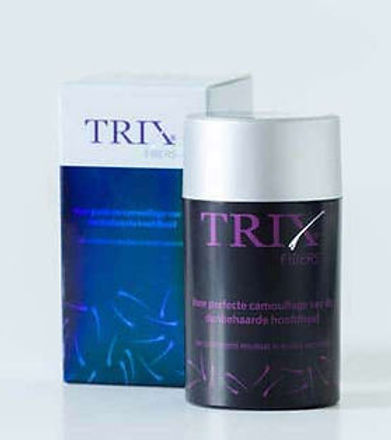
TRIX Basic supplements for hair loss
Hair loss is more common than people think
Both in men and women. Nobody is waiting for this. However, hair loss is inevitable. As soon as you encounter it it is a bit of a shock.
Fortunately, nowadays there are several ways to combat hair loss. In addition to the well-known hair transplant, medications such as minoxidil, finasteride and dutasteride have proven to be effective remedies. You will not get back lost hair, but you will slow down the hair loss or even stop it completely.
Our team of specialists has developed three different nutritional supplements. Each nutritional supplement focuses on a specific type of hair loss. The types of hair loss that TRIX Basic focuses on are:
-
Androgenetic Alopecia – Thinning hair
-
Telogen Effluvium – Hair loss due to stress
-
Alopecia Areata – Bald spot on head
TRIX Basic nutritional supplements have been recommended by general practitioners and dermatologists for about 20 years.
If you are just experiencing hair loss, choosing nutritional supplements is a good first step. The advantages: you take a capsule once a day with water, it is a relatively cheap remedy and the active ingredients have a scientifically proven effectiveness.
TRIX Basic supplements
Hair loss, still a taboo
And especially in women. A balding head is a socially accepted image for men, much less so for women. And while almost half of women experience some form of hair loss after the age of 35.
Taking TRIX Basic nutritional supplements is therefore always a good idea. The supplements are full of vitamins that are essential for the production of scalp hair. In some cases, a vitamin deficiency is the cause of hair loss. Nutritional supplement TRIX Basic Beta can solve this problem and also acts as a natural addition to your diet. Everyone can use extra vitamins.
Using nutritional supplements will not help you regain lost hair, but you can slow down the process of hair loss. In doing so, you make the existing hair healthier: thin hairs become thicker again.
Trix Basic FAQ
Are you worried about your hair?
We can help!
Do you notice that your hair is getting thinner? Are you losing more hair than normal? Has your hairline changed compared to the past? Are you concerned about the decline in quality of your hair and do you want to know what you can do?
Our dermatologists are experts in the field of hair problems.
During a consultation, a thorough diagnosis is made and the treatment options are discussed with you in detail, together with what you can expect. We understand that hair loss can have an emotional impact and our team of professionals are ready to support you and provide the best possible solutions.


.jpg)
.jpg)



